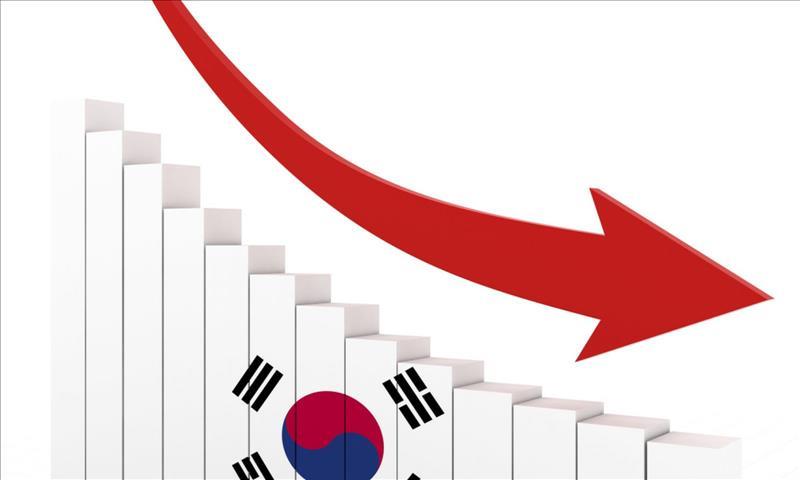
Korea Shares Tread Tricky Slalom Course
Korean stocks, after a 35% gain in 2017 that matched the broad MSCI emerging market index, were helped by Pyeongchang Olympic Games enthusiasm through February despite growth, tax and debt alarms jangling investor nerves.
Geopolitics was briefly set aside as Seoul fielded joint teams with Pyongyang with Kim Jong-un's sister in attendance, while Chinese tourists were visible arrivals after last year's boycott over the contentious deployment of the THAAD anti-missile system.
Must-reads from across Asia - directly to your inboxThe US$15 billion hosting cost to Pyeongchang, likely to leave a debt legacy following the unsuccessful host city 'repurposing" of Olympic facilities pattern in past decades, was scarcely debated as South Korea's National Assembly reported that per capita national borrowing was already US$12,000.
That figure is apart from the US$1.3 trillion in household debt the International Monetary Fund flagged as a 'main financial stability risk' in its February Article IV report. The central bank warned at the same time that this load will continue to dent private consumption, which was up just over 2% in the last quarter.
Domestic mutual fund assets reached a record US$500 billion in January, but foreign investors, owning one-third of the stock market, were spooked by a new proposed capital gains levy in a 5-25% range that would hit Asian regional buyers with less generous tax treaties in particular.
The Finance Ministry argued that such treatment would be equal to local equity players, while acknowledging that record-keeping would add administrative and technology expenses. Fund managers from the European Union (EU) and United States (US) previously turned wary on increased bilateral friction.
The EU's Chamber of Commerce in Seoul released a poll with 60% of executives criticizing access barriers and 'discretionary enforcement.' Although the trade surplus with the US dropped 15% to US$23 billion in 2017, US President Donald Trump backed 30% tariffs on South Korea-produced washing machines, a move President Moon Jae-in's government appealed to the World Trade Organization.
He has threatened to scrap the 'bad deal' free trade agreement between the two countries as US car maker General Motors recently shut a local plant and was blasted by Moon's team for its 'unilateral decision.'
Despite the Korean won's emerging market leading near 15% appreciation against the dollar last year, the US Treasury Department also has the South Korean central bank on a "watch list" for suspected undue intervention in currency markets. With all these spats raging, South Korea's sovereign credit default swap premium spiked briefly in the Games' early days, despite the good news rapprochement with the North.
In the final quarter of 2017 real GDP shrank 1%, as the manufacturing PMI index was under the neutral 50 and high-tech export growth halved to just above 10% in December. This year's official GDP forecast is again for a 3% expansion on subdued inflation below the 2% target, with the benchmark interest rate staying at 1.5% after a marginal 25 basis point hike in November.
A new central bank head will be appointed in March, but further tightening is not in the cards with the mortgage and credit card debt burden and car producers Hyundai and Kia reporting lousy earnings on a 7% sales drop last year.
Hyundai's bottom line had previously been damaged after it was fined by the Fair Trade Commission, as the chaebol are generally under high-level scrutiny for alleged monopoly behavior and bribery practices by the regulatory agency's well-known director, Kim Sang-Jo, also known as the 'sniper.'
His aim may have missed the mark as Samsung's jailed former chief executive, accused of paying off officials to approve a merger, was freed in time for the Olympics opening ceremony, with the company a major sponsor of the games.
Moon has promised to shake up the big conglomerates and boost small and midsize businesses, which can raise future employment and service sector productivity, according to the IMF's latest review. It recommends that policy, as outlined in his inaugural budget, favor innovation as opposed to 'shielding weaker firms.'
Corporate leverage remains high with the average debt-equity ratio at 80% as of end-2016, and debt restructuring has been widespread in the crucial shipping industry, which received capital injections from state development banks.
Annual credit growth is still close to 10% at commercial banks, despite the imposition of macro-prudential measures designed to limit speculative apartment purchases through lending limits. The industry loan/deposit ratio is 120%, and bad assets have increased at non-bank providers evading the regulatory net and basic stress-testing as supervisors seek to skate past potential disqualifications.
Asia Times is not responsible for the opinions, facts or any media content presented by contributors. In case of abuse, .
Legal Disclaimer:
MENAFN provides the
information “as is” without warranty of any kind. We do not accept
any responsibility or liability for the accuracy, content, images,
videos, licenses, completeness, legality, or reliability of the information
contained in this article. If you have any complaints or copyright
issues related to this article, kindly contact the provider above.


















Comments
No comment